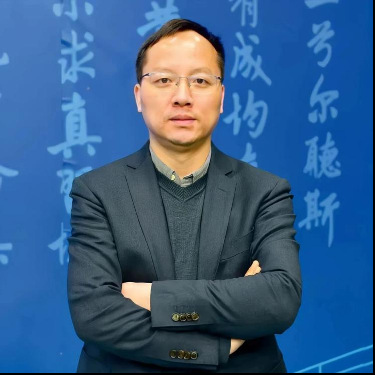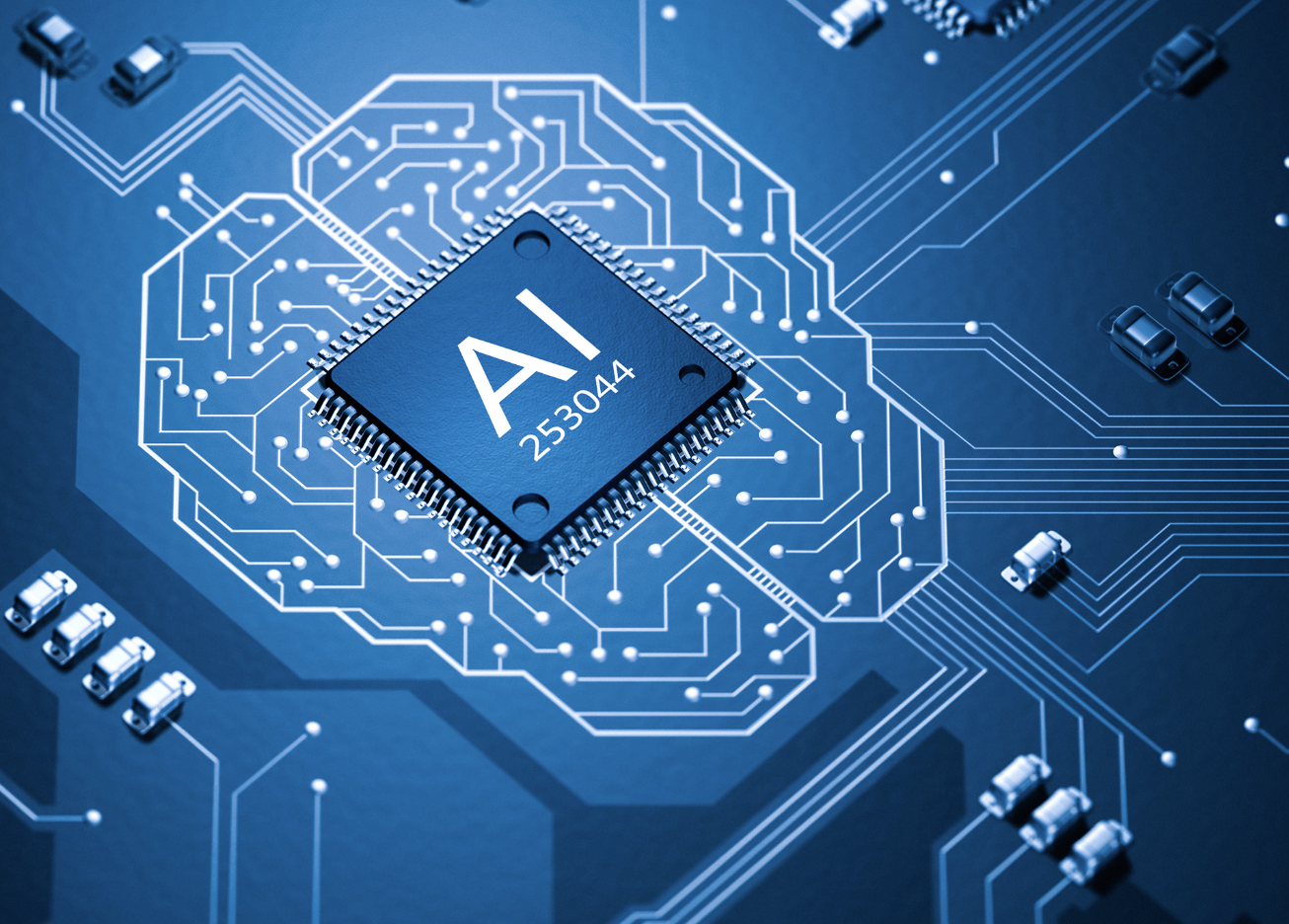Safeguard the security of AI and build a solid foundation for the orderly development of "Artificial Intelligence+"
Ren Kui
Qiushi Chair Professor
Dean of the College of Computer Science and Technology, Zhejiang University

China proposed to promote the deep integration of the Internet, big data, artificial intelligence and the real economy, and build a digital China and a smart society. At present, various industries are actively moving towards a new stage of intelligence, networking, and digitization. This year's government work report pointed out that "deepening research and development applications such as big data and artificial intelligence, carrying out 'artificial intelligence+' actions, and building digital industry clusters with international competitiveness". The concept of "artificial intelligence+" was first proposed, which means that the country will vigorously promote the construction of a modern industrial system with artificial intelligence as the innovation core, and accelerate the development of new quality productivity.
However, while "AI+" is moving forward, it is also facing many threats and risks. In the government work report, "security" was mentioned more than 20 times. Ensuring the security of AI itself and addressing the governance risks of its extension, such as deep fakes, is the only way for the sustainable development of "AI+".
The security of artificial intelligence itself is the cornerstone of the orderly development of "artificial intelligence+". While artificial intelligence technology has injected new momentum into industrial upgrading and development, it has also brought new safety risks. The guarantee of many security elements such as reliability, fairness, and explainability has become an indispensable prerequisite for "artificial intelligence + thousands of industries".
The 3rd Belt and Road Forum for International Cooperation put forward the Global Artificial Intelligence Governance Initiative, calling on the international community to strengthen mutually beneficial cooperation and gradually form a global consensus through technical exchanges, information sharing, risk prevention and control, and other measures. Only by jointly controlling the "safety red line" of artificial intelligence from the level of technology and understanding, can we ensure the healthy development of "artificial intelligence+".
While artificial intelligence empowers social development, it is also urgent to address the new security risks that have been extended. In addition to its own security concerns, the inappropriate use of AI has also brought new governance challenges, such as the proliferation of false information, the ambiguity of copyright definitions, and the intensification of privacy violations.
A number of deepfake incidents at home and abroad, such as the Ukrainian president's persuasion to surrender a fake video, a Hong Kong company being defrauded of 200 million Hong Kong dollars by a fake CFO, and the first AI copyright case of the Beijing Internet Court in 2023, all reflect new problems at the social and even national levels caused by "artificial intelligence+". In the face of the governance risks of these new business formats, China has promulgated relevant laws and regulations, but it is still necessary to strengthen the research and development of governance technologies, promote cooperation from all walks of life, and better cope with the new situation of "artificial intelligence +".
Security is the premise of development, and development is the guarantee of security. In contrast, artificial intelligence can also empower the cybersecurity industry in reverse. In the new security situation formed by the wide application of artificial intelligence, traditional network security technology has gradually been unable to deal with security threats such as API attacks and advanced bot attacks, and it is urgent to use the powerful data analysis capabilities of artificial intelligence to more accurately explore the deep-seated characteristics and trends of new network security threats.
"Artificial intelligence + network security" will accelerate the transformation and upgrading of the traditional information network security industry, and become the security cornerstone of the sustainable development of artificial intelligence. The two work together to promote "artificial intelligence+" into a reliable and safe new quality productivity engine.
Artificial Intelligence +: Universal Enabling Technology
Wu Fei
Qiushi Distinguished Professor
Secretary of the Party Committee of the College of Computer Science and Technology and the School of Software Technology, Zhejiang University
Shanghai Institute for Advanced Studies, Zhejiang University

Turing Award winner McCarthy once laughed at himself: "As soon as it works, no one calls it AI any more, because it is a computational process, not an implementation of human intelligence, which is called the AI effect or odd paradox."
Artificial intelligence is inherently application-driven, has the potential to enhance technology in any field, and is an "enabling" technology similar to an internal combustion engine or electricity. Steam engines, electricity, computers, semiconductors, and the Internet, like artificial intelligence, are all general-purpose technologies, which have the characteristics of universal applicability, dynamic evolution, and complementary innovation.
General-purpose technology is the core element of innovation, but it is not the complete final solution. Watt improved the steam engine in 1795, but it was not until the following decades, when the steam engine was closely integrated with the textile, transportation and metallurgical industries, so that mechanical power quickly replaced manpower, wind power, water power and animal power, that the contribution of the steam engine to labor productivity reached its peak and propelled mankind into the era of the Industrial Revolution. The American historian Leften Stavros Stavrianos praised it in his book The General History of the World as "the historical significance of the steam engine, no matter how exaggerated".
In the same way, the combination of general enabling technologies represented by electricity and computers with other industries has enabled human society to enter the electrification age and the information age.
"Once there is a need for technology in society, that need will push science forward more than ten universities." Today, AI is making strides in multiple directions, offering tremendous opportunities for humanity to unleash creativity and boost economic growth. Artificial intelligence needs to be combined with economic application scenarios to play the greatest role, because artificial intelligence applications integrated with economic scenarios can bring together innovation-related elements such as talent, capital, technology, and policy, achieve technological iteration and breakthroughs, and form innovative results that can be commercialized.
Only by promoting the accelerated penetration of "artificial intelligence +" into the industrial economy, people's livelihood improvement and social governance, and promoting the deep integration of artificial intelligence and the real economy, can we add to high-quality development with the high-level application of artificial intelligence.
Data plus knowledge: "Artificial intelligence+" accelerates the development and breakthrough of digital industrial clusters
Yang Yi
Qiushi Chair Professor, Zhejiang University
Vice Dean of the College of Computer Science and Technology, Zhejiang University

The 2024 government work report points out that it is necessary to further promote the innovation and development of the digital economy, carry out the "artificial intelligence +" action, and build a digital industrial cluster with international competitiveness, so as to promote extensive and profound digital transformation, empower economic development, enrich people's lives, and improve the modernization level of social governance.
In the current wave of digitalization, "artificial intelligence+" has become the main direction leading the development of the digital industry. In order to accelerate the development of digital industrial clusters, it is necessary to give full play to the huge potential of artificial intelligence technology, accurately combine big data and domain knowledge, promote the high-quality development of the digital economy in various fields and industries, and achieve digital transformation and upgrading.
First of all, as an important element of the development of artificial intelligence, the collection, labeling, storage and analysis of "data" has become an important foundation for promoting the development of artificial intelligence. Big data becomes the basis for training intelligent digital models and shaping powerful AI systems. In this process, it is necessary to strengthen the protection of data to ensure personal privacy and data security. At the same time, governments and enterprises should also strengthen the management and regulation of data share while promoting the openness and exchange of data.
Secondly, "knowledge", as the key driving force to promote the development of artificial intelligence, includes domain business scenarios, industry domain knowledge, human management experience, etc., which need to be expressed in various forms. Therefore, we need to digitally model knowledge in different fields to improve the ability to acquire and apply AI knowledge. At the same time, we also need to strengthen the standardization, sharing and integration of knowledge, build a knowledge service platform, and provide high-quality knowledge information and data resources.
In addition, the "artificial intelligence +" action should also strengthen the cultivation and introduction of talents. We should attach importance to the cultivation and development of interdisciplinary talents, and cultivate professionals with professional and technical background, practical ability and innovative thinking. At the same time, we should actively introduce high-level talents at home and abroad, lead global cooperation, promote joint research, and build a digital industrial cluster with international competitiveness.
Guided by actual needs, we should explore a new generation of artificial intelligence methods driven by data and knowledge, increase the cultivation of talents in cross-cutting fields of artificial intelligence, continue to promote the "artificial intelligence+" action, promote digital industrialization and industrial digitization, and promote the deep integration of artificial intelligence technology and the real economy.
Brain-computer intelligence: Human intelligence and machine intelligence will be deeply integrated in the future
Pan Gang
Qiushi Distinguished Professor
Director of the Institute of Computer Systems Architecture and Cybersecurity, Zhejiang University

Brain-computer intelligence draws on the information processing methods of the human brain to construct a virtual brain, and then realizes the seamless connection and integration of the biological brain and the virtual brain by directly recording and interpreting brain activities, resulting in a variety of new forms of artificial intelligence with rich characteristics, which can achieve the purpose of enhancing, replacing and compensating the original perceptual function, cognitive function and behavioral ability. For example, it can help paralyzed patients regain their freedom by mind-controlling prosthetics or wheelchairs, and can provide a more immersive virtual reality experience that allows players to control virtual characters directly through their brains.
Brain-computer intelligence has become a new trend, new form, and new path of artificial intelligence, which is strategic, cutting-edge, and fundamental, and has a wide range of application prospects in the fields of medical care, education, entertainment, and health. Firstly, brain-computer intelligence realizes the high-dimensional and efficient interaction and integration between machine intelligence and human intelligence, which is an important way to build stronger intelligence. Secondly, brain-computer intelligence is the key force for the transformative and disruptive innovation of the new generation of artificial intelligence industry in the future. Thirdly, brain-computer intelligence is also a transformative non-chemical treatment for major brain diseases and brain health such as depression, anti-aging, autism, and epilepsy.
At present, brain-computer intelligence technology is still in its infancy, and its development is facing many challenges: the brain-computer intelligent computing model is not clear, the acquisition, interpretation and regulation of brain-computer information are still relatively limited, the enhancement and integration of brain-computer interaction are relatively difficult, the reliability and stability problems need to be further improved, and it is necessary to overcome obstacles in ethics, morality, laws and regulations. In addition, there are still problems in China, such as the technology weakness of brain-computer basic devices with independent property rights.
In the future, with the continuous progress of science and technology and the in-depth understanding of the working mechanism of the brain, it is believed that brain-computer intelligence technology will play an increasingly important role and bring a more convenient and intelligent life to human beings.







